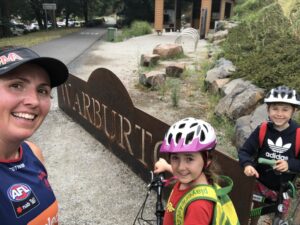Lisa Archer, Educational & Developmental Psychologist, Strong Minds Psychology
Updated post from January 2018 with edits
So it’s almost that time… your baby is headed to high school. You may not recognise them after the last few weeks – holed up in their room watching YouTube, hanging out with friends, or they’ve grown a foot taller than you!
Even for some seasoned high schoolers, some of these tips might be helpful during the settling in period.
1. Colour Coding
Reduce the stress of trying to remember what class is next, what equipment to bring, and where the classroom is. Bring together a school map, timetable, and locker full of equipment with some colour coding. Organisation can be extremely daunting for children headed into Year 7.
- Choose a colour for each subject
- Use coloured dots, and coloured folders if you can find them to sort out the equipment needed
- Print out 2 or 3 copies of the timetable, colour it in, & stick in the bedroom, on the fridge, & in the locker. It could also go inside your school diary/planner
- If needed, print a copy of the school map – colour code the classrooms as well!
2. Early Visit
Head in the day before school starts if possible, and set up that locker. This will remove the issues of carrying a heavy backpack in on day 1, and leave your teen feeling organised and confident heading in for their first day of up to 6 subjects!
- Set up the locker neatly with clear colour coding
- Stick up the timetable inside the door
- Practice the lock – combination or key, 27 times (!) or until confident
- Review where the main classrooms, buildings & offices are
3. “Wear” in that uniform
Engagement, mood and learning will all be better if you have a comfortable student headed out the door. Try these ideas to reduce sensory discomfort throughout the day.
- Extra wash or two of the uniform
- Cut off tags or spare buttons
- Wear new school shoes around the house & get active
- Check out second-hand options for your next uniform purchase
- Talk to staff about alternative options if your teen needs the security of a hood, or can’t enter the classroom without a hat, or is not able to wear leather lace ups – maybe a change can be catered for
4. Communication
It all changes in the shift from primary to secondary. Gone are the days of chatting with the classroom teacher potentially twice per day. You and your teen are now dealing with multiple teachers, support staff, and leadership levels. Key things to find out and ask if needed:
- Who is the first point of contact if an issue occurs – for students & for parents?
- If organisation/homework are tricky factors – can task requirements be emailed directly to parent email, or how does the school portal work? (e.g. Compass)
- Help your teen to develop & recognise a core group of staff (at least 5 – a handful!) that they can approach if difficulties arise (e.g. Year Level Coordinator – YLC, Home Group/Mentor Teacher, Individual Needs Coordinator, etc)
5. Letter to the teacher
Upon transition to high school, we definitely want to be helping our children to advocate for themselves. Helping them to “teach the teacher” – what is useful for them, how they learn best, what ways they can best show what they know. Support those who are unsure, or need keyboard help, but encourage their own viewpoint of the classroom. This can be done only in Year 7, or across any new transition when required. Look out for another post with a full example of how to write this letter, but here are some key points to include, if you are concerned about those early days with the new teachers – not just the comfy class teacher anymore….
- Favourite activities/hobbies/subjects
- Things that are tricky – e.g. teachers who speak loudly or yell (at anyone), reading aloud in front of class, wearing a school dress/tie
- Things that help – e.g. dot points of instructions on the board, check in after a few minutes, ear-buds in ears (not necessarily listening to music, but looks cooler than ear muffs or ear plugs), exit card to take a break when needed, safe space to go if cannot go to class
- What has been working so far – at home or at primary school
Check out our other tips on the return to school in 2019- for primary school/kinder students, parents, and the letter to the educator.
If you need additional support helping your child to settle into secondary school, call the team at Strong Minds Psychology on 03 5967 1438, or complete the form below. Our clinicians are passionate about working together to help children to be the best they can be, and support both caregivers and educators on that journey!
About the Author:

Lisa is an Educational & Developmental Psychologist, and the founder of Strong Minds Psychology. Lisa has a decade of experience working in & with school staff to support the educational, social, & emotional needs of children throughout their school career, and beyond. Lisa thrives on working with people in a team approach, creating positive support networks for children and adults. She provides assessments, counselling and therapy – helping with stress, anxiety, depression, self-esteem, grief & loss, social skills, and anger management.

